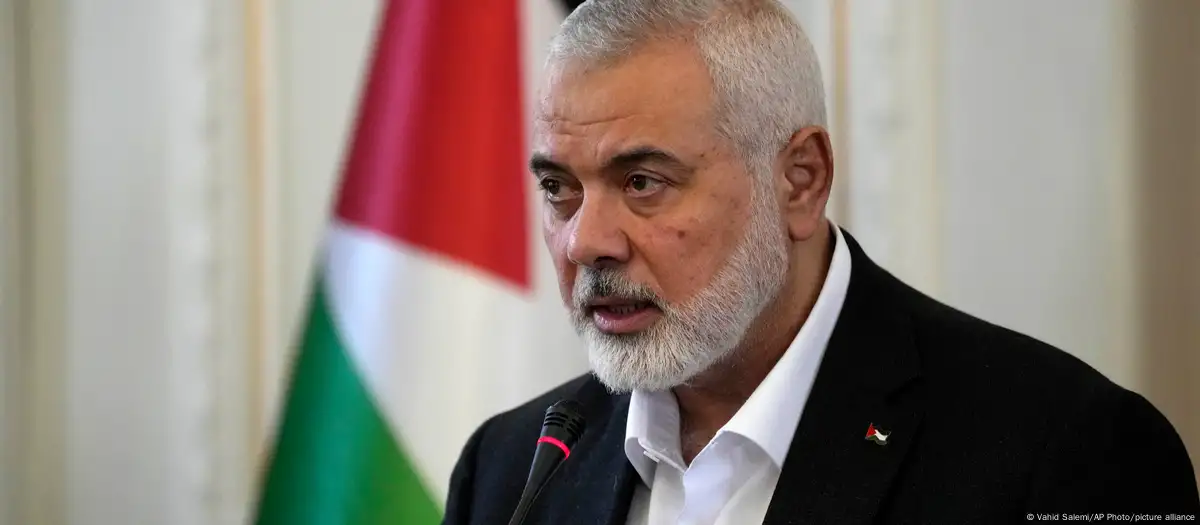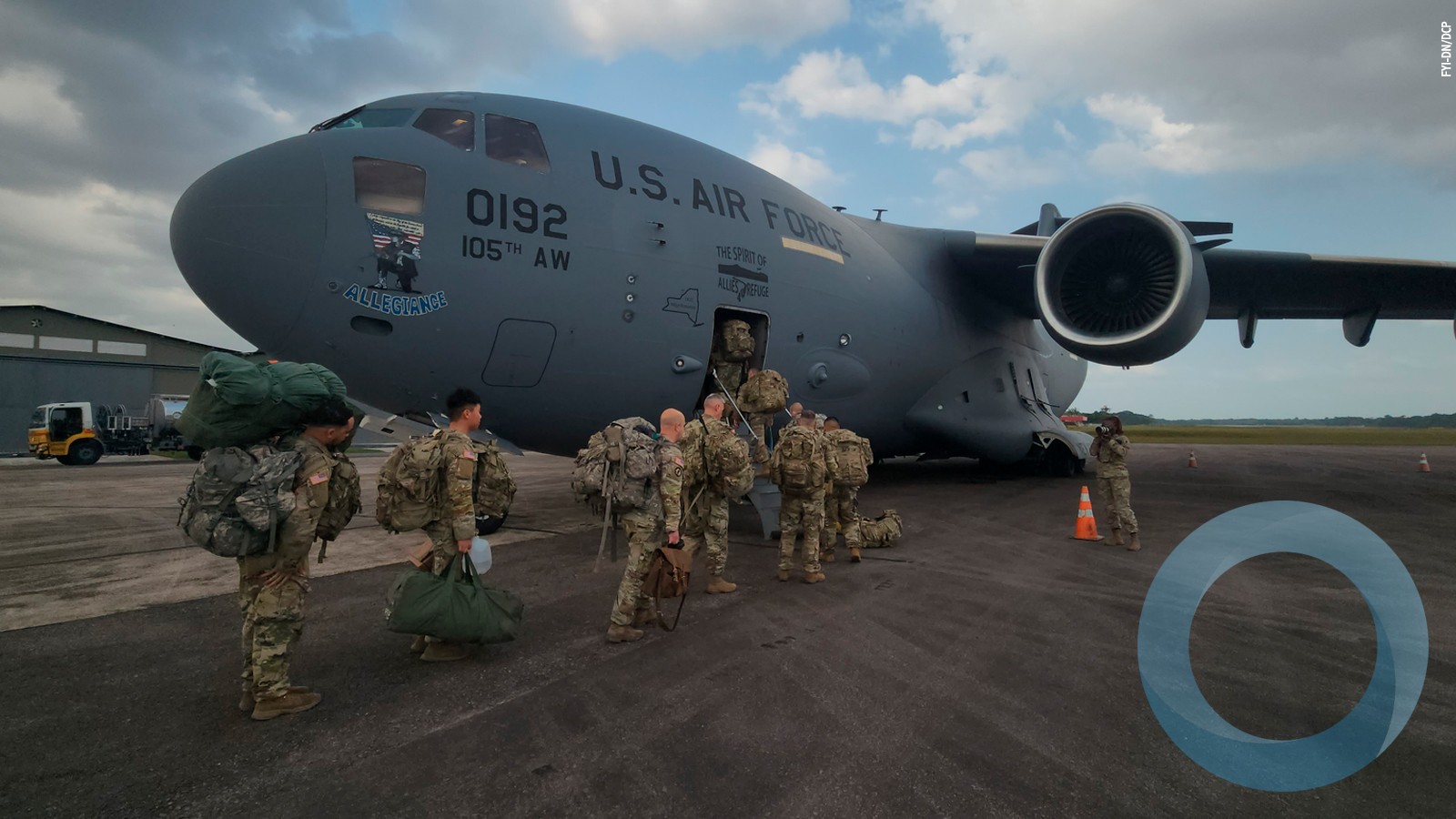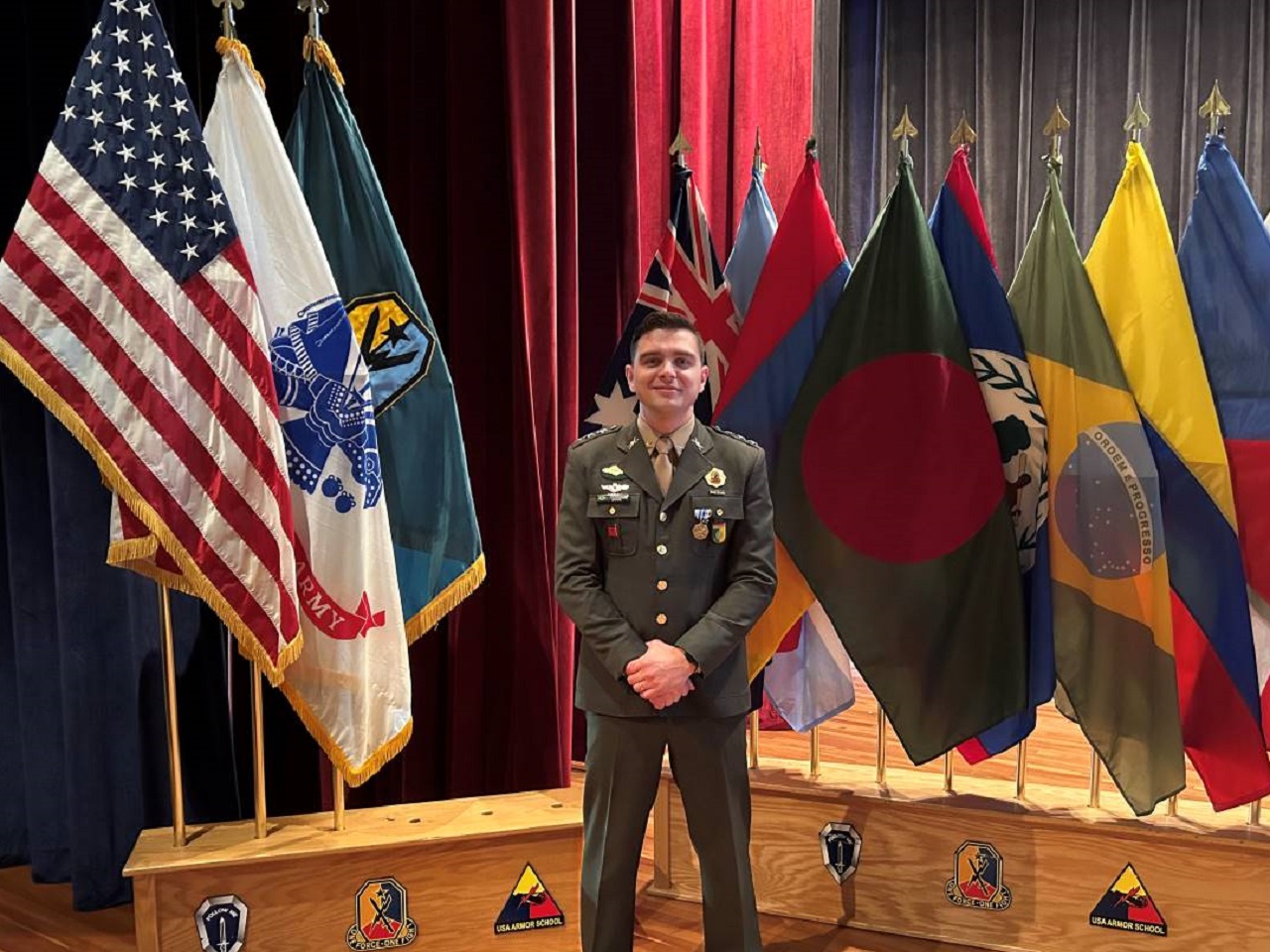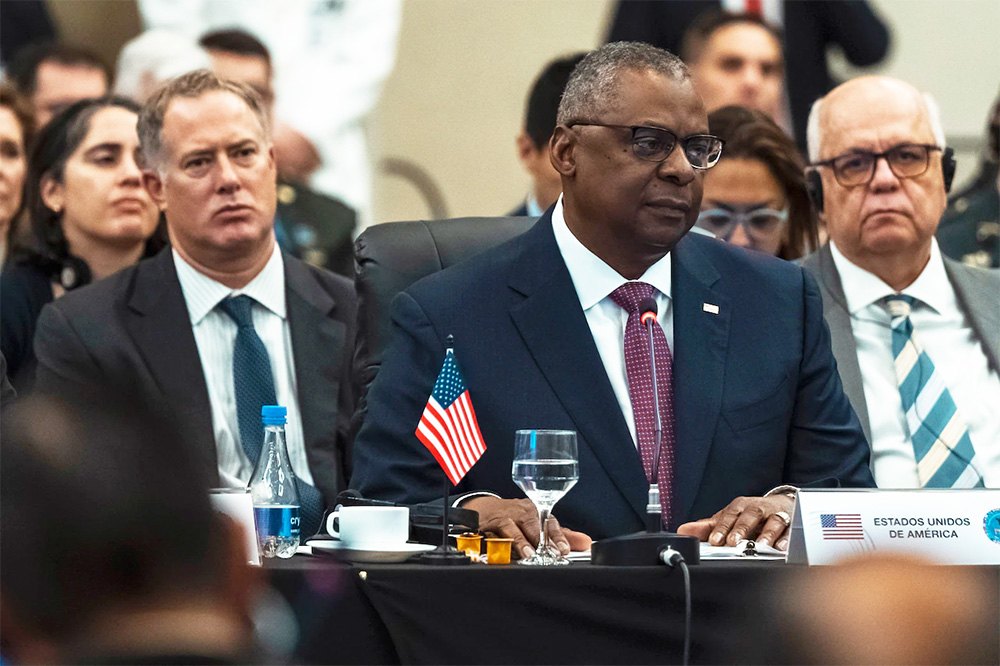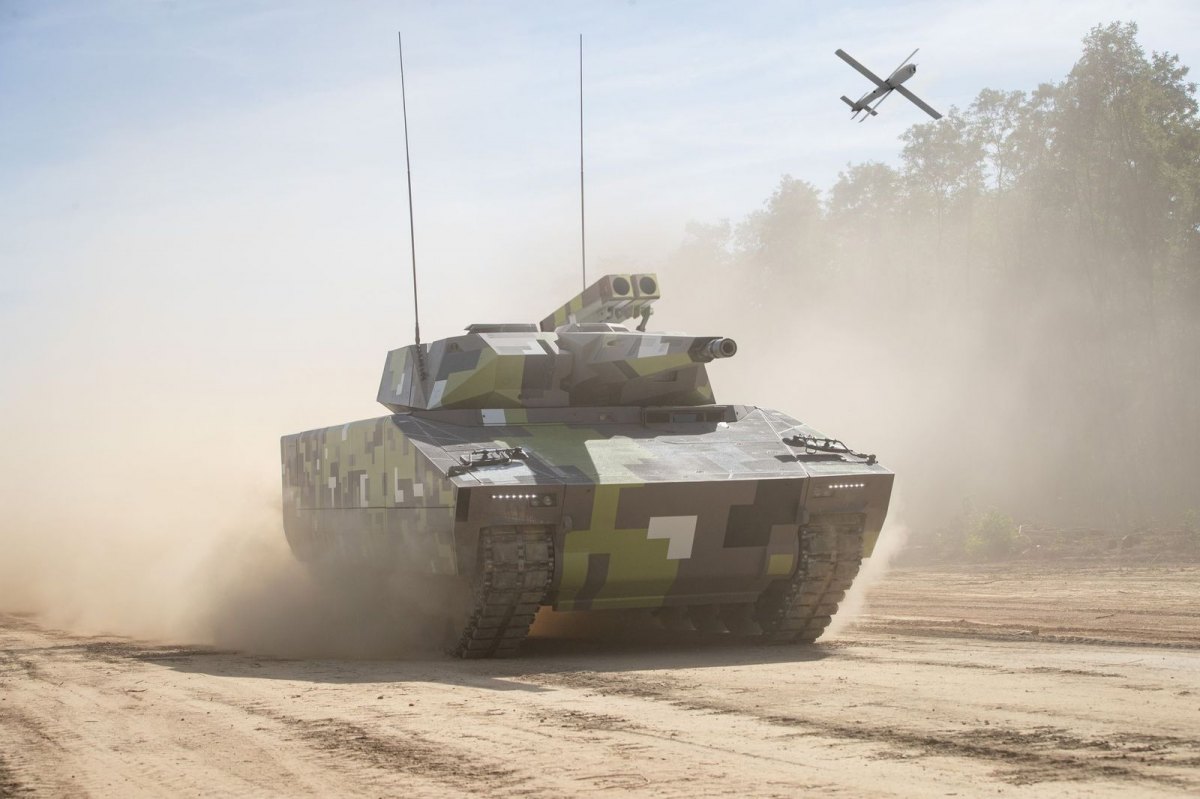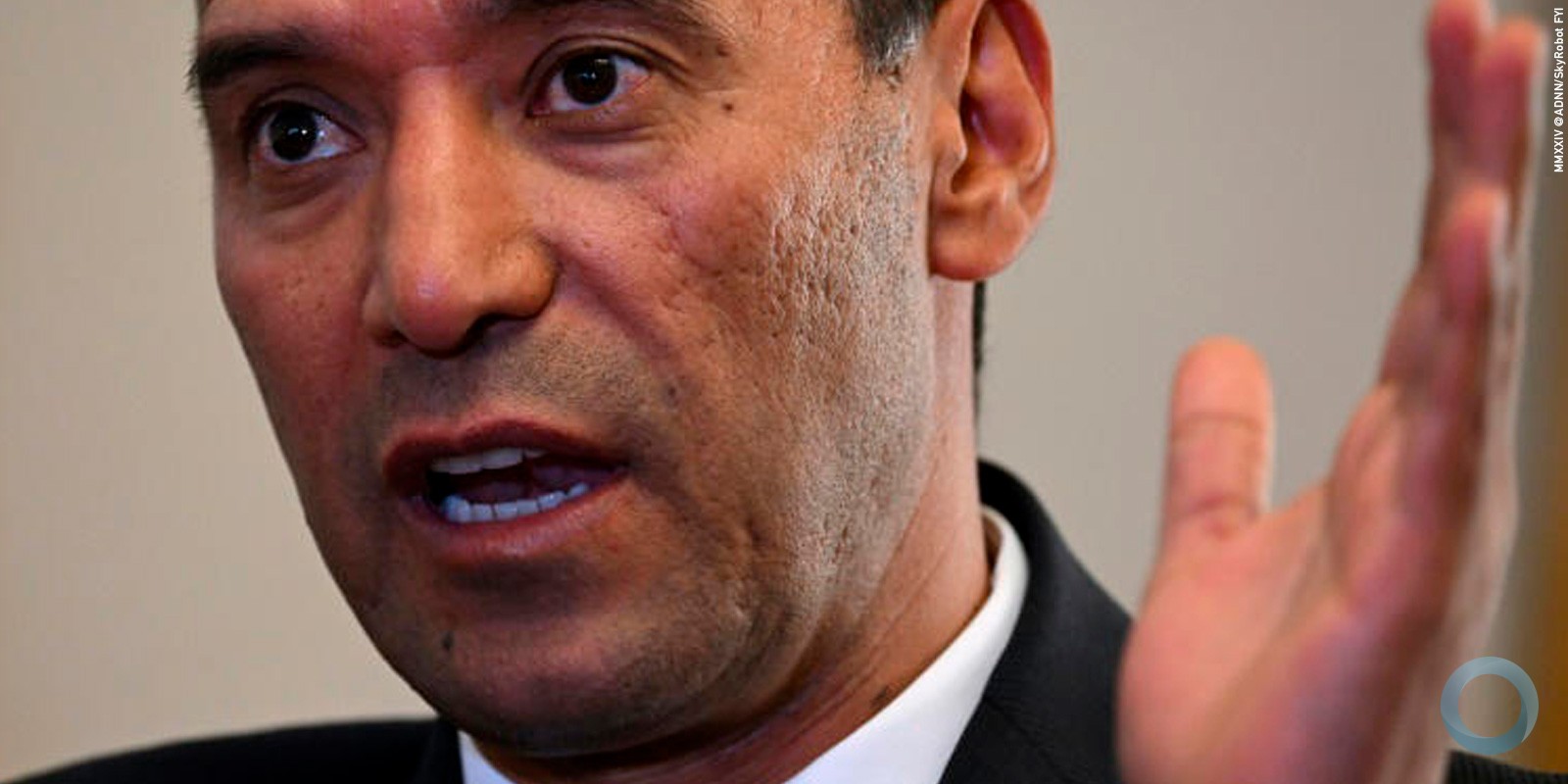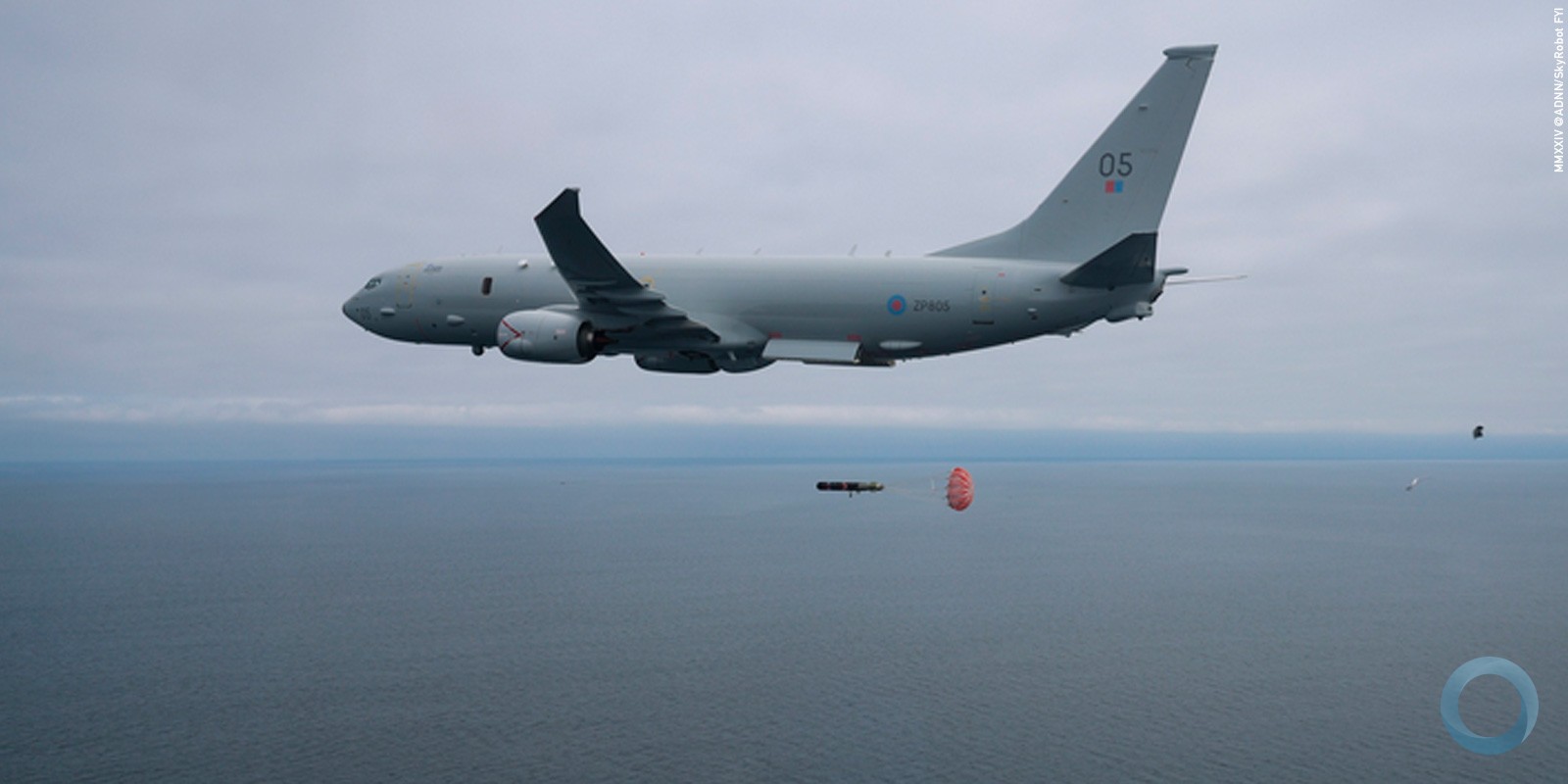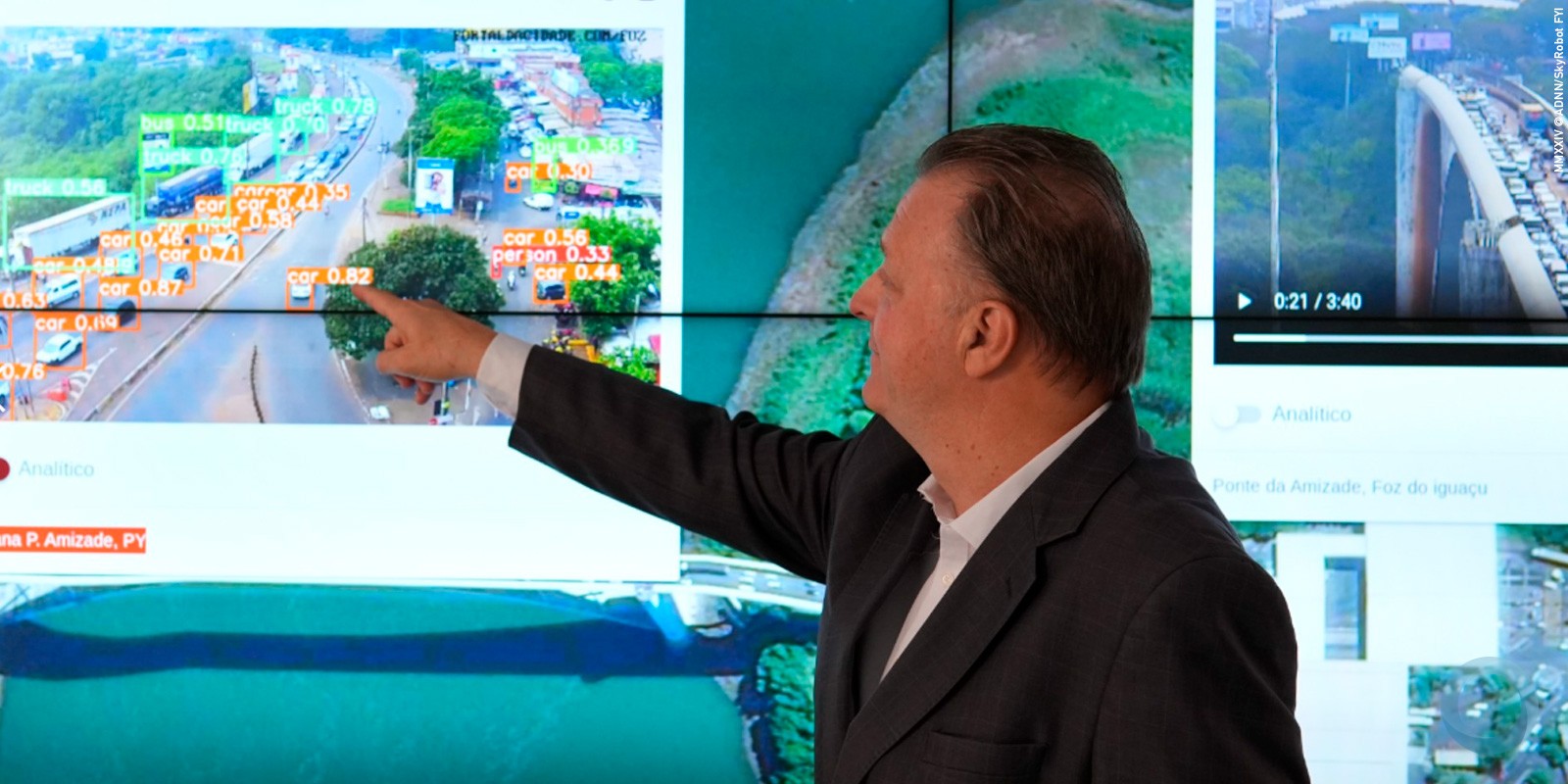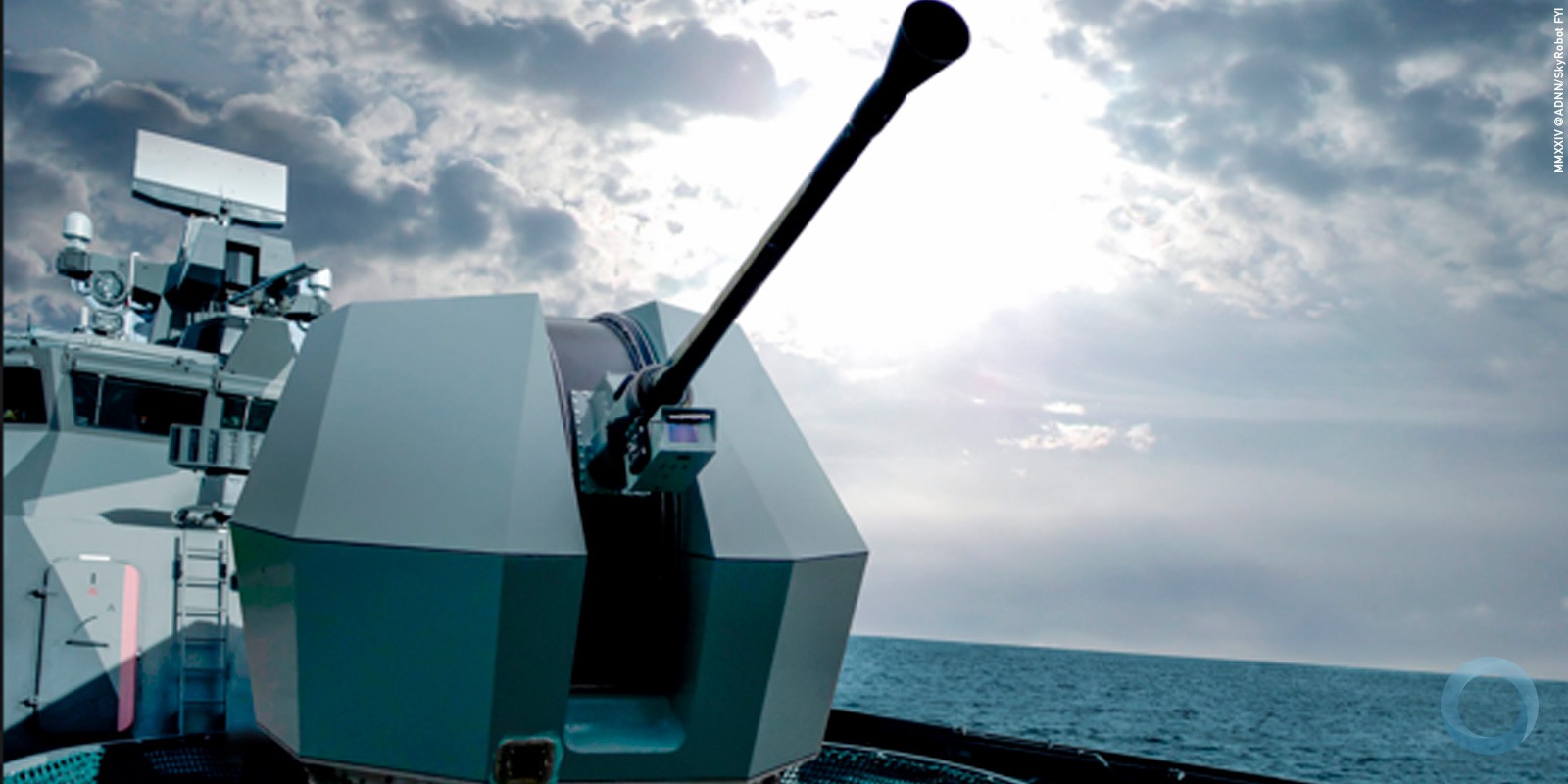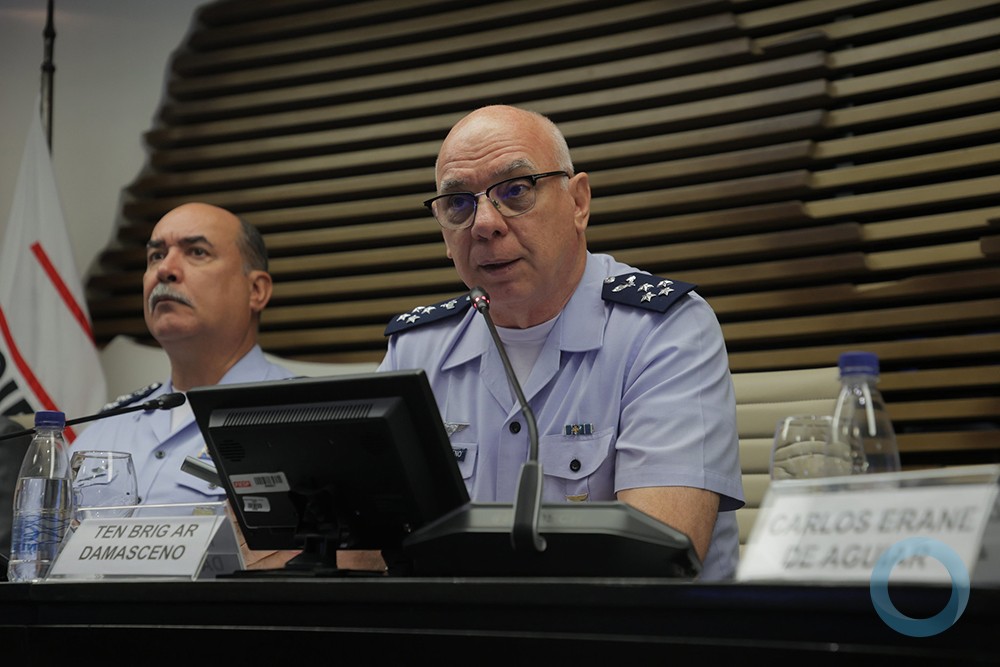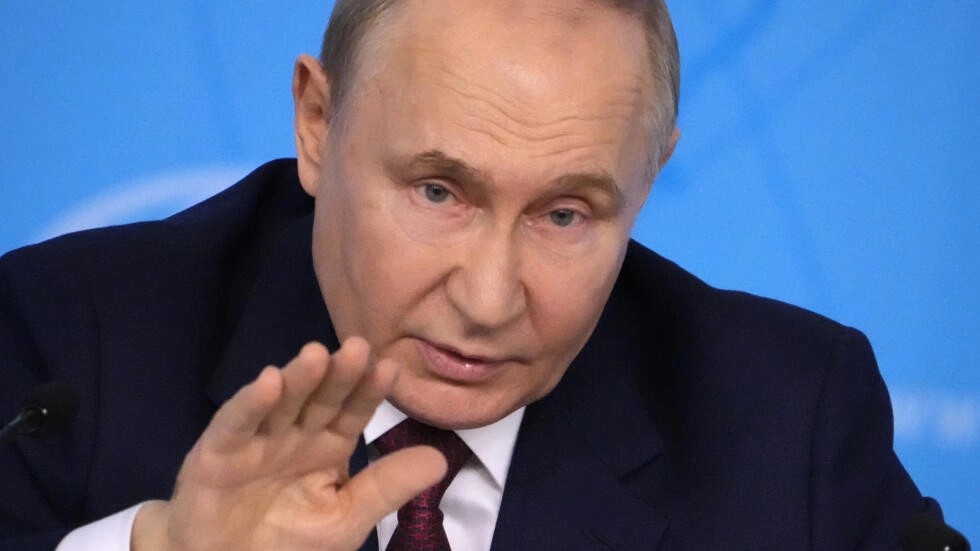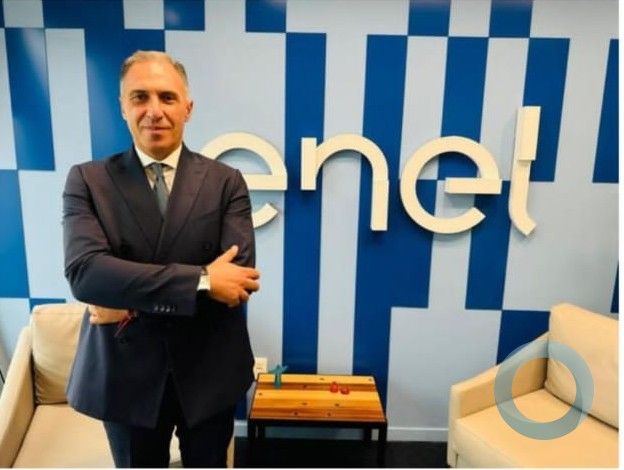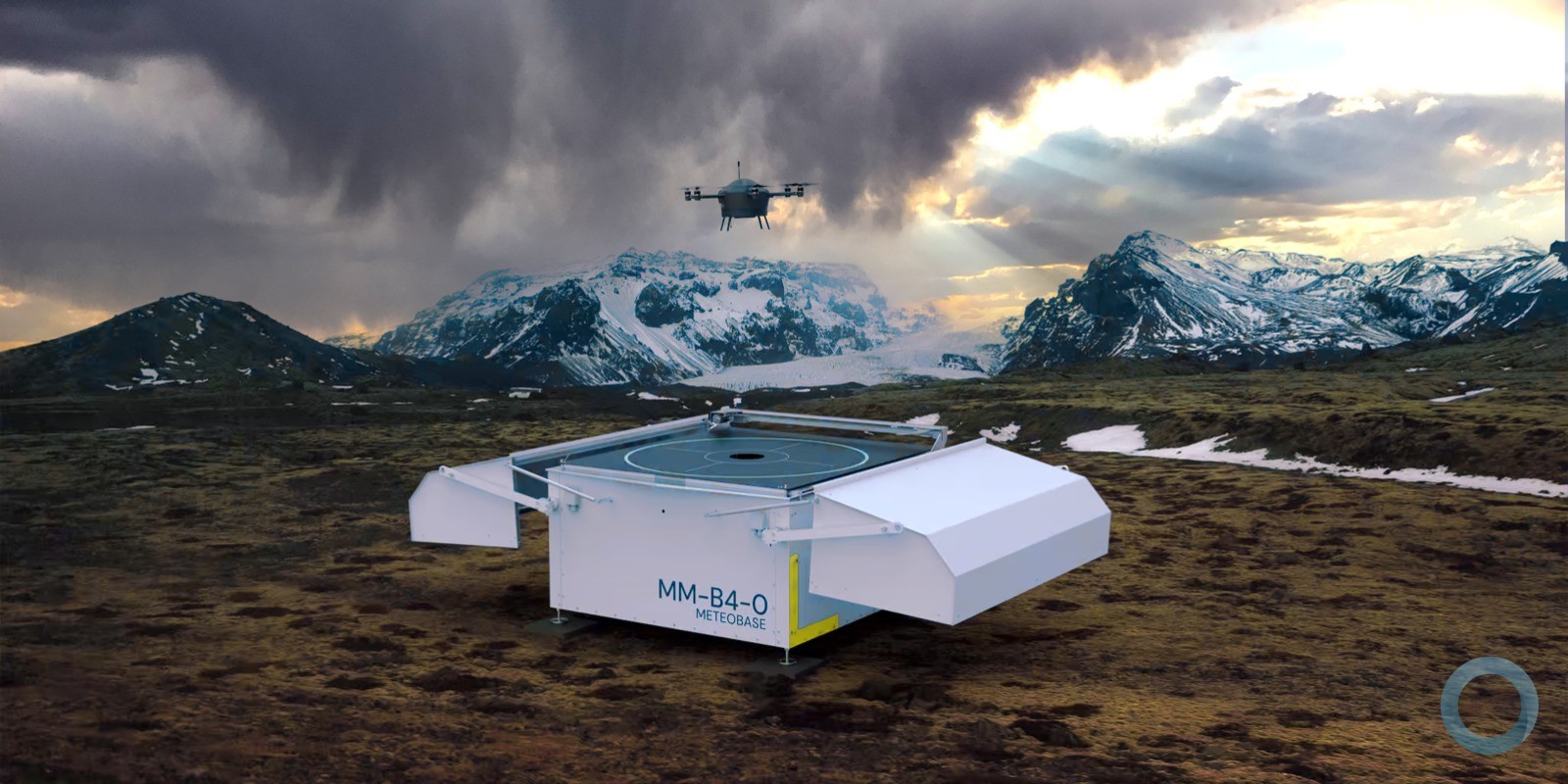Text in Portuguese
EXCLUSIVO – Entrevista Alm Kurt W. TIDD (SOUTHCOM) Link
The Editor
By Nelson Düring – DefesaNet’s chief-editor
Translated by Nicholle Murmel
.
Adm. Kurt W. Tidd is the 23rd commander of SOUTHCOM. He assumed command Jan. 14, 2016.
In the first visit to Brazil as SOUTHCOM commander Admiral Kurt W Tidd gave an exclusive interview to DefesaNet. In 2012, when headed 4th Fleet also gave an interview to DefesaNet (available only in portuguese Link Entrevista Contra-Almirante Kurt Tidd – US Navy)
U.S. Southern Command is responsible for all Department of Defense security cooperation in the 45 nations and territories of Central and South America and the Caribbean Sea, an area of 16 million square miles.

Admiral Kurt Tidd talk with DefesaNet Chief-Editor
Photo – Juliana Shibata / US Embassy
Brief Admiral Kurt W Tidd Resumé
Admiral Tidd was commissioned from the U.S. Naval Academy in 1978, with a degree in Foreign Area Studies.
At sea, he commanded U.S. Naval Forces Southern Command and U.S. 4th Fleet. Afloat, he also commanded Carrier Strike Group 8 aboard USS Dwight D. Eisenhower (CVN 69), during a combat deployment supporting coalition forces in Operation Enduring Freedom. From 2004 to 2005, he commanded Persian Gulf maritime operations as Commander, Middle East Force and Commander Task Force 55.
Ashore, he served as the 35th Assistant to the Chairman of the Joint Chiefs of Staff, as well as the Joint Staff Director and Vice Director for Operations (J3). He spent three years on the National Security Council Staff as Director for Strategic Capabilities Policy, and as a Director for Combating Terrorism. He was the founding Deputy for Operations on the Chief of Naval Operations’ War on Terrorism Operations Planning Group "Deep Blue" established following the September 11, 2001 terrorist attacks.
A second generation surface warfare officer, Tidd is the son of retired Vice Admiral and Mrs. Emmett H. Tidd, USN, and is the brother of the Navy’s 25th Chief of Chaplains, Rear Admiral Mark L. Tidd, retired.
Admiral Tidd salute Brazilian Soccer Team
On start Admiral Tidd gave his condolences to the Brazilian people and especially to the families of the 71 fatal victims of the plane crash in Colombia. The entire Chapecoense soccer team lost their lives along with 21 journalists and part of the crew of the Bolivian charted flight contracted to take the team to Medellín, where the South American Soccer Cup finals were taking place.
Regarding his new position as head of the USSOUTHCOM and the previous meeting with Adm. Sobrinho, Tidd commented on the current status of diplomatic and economic relations between Brazil and the United States. The Admiral emphasized the importance of both nations acting as partners with common interests in the “security, stability and economic prosperity” of the South Atlantic region.

Admiral Kurt Tidd showed great enthusiasm by Brazilian action during the Word Cup 2014 and the RIO 2016 Olympic Games. Photo – Juliana Shibata / US Embassy
RIO 2016 Olympic Games and World Cup 2014 praised by Adm Tidd
The commander also praised the performance of government, military and law-enforcement institutions providing security during the last World Cup, in 2014, and the Rio de Janeiro Olympics Games RIO2016, back in August, and how efficiently Brazilian organizations worked along with the international community in order for those giant events to happen. “There was no doubt that, because of the long lasting partnership the United States and Brazil have had, that we [the United States] would do everything that we could, everything that Brazil asked, for us to be a supportive partner”.
When questioned about the US undertaking potential deals and joint ventures with Brazil in the defense industry field, Tidd explained that all efforts on that front are negotiated by the government, diplomatic authorities and industrial teams from both nations, and that his particular role is “to provide the understanding from the military-to-military [aspect] of these partnerships”.
According to the head of USOUTHCOM, specific ongoing ventures in the defense sector, such as the modernization of the M113 APCs, American manufacturers providing engines for the Hercules cargo aircraft and the Skyhawk helicopter, as well as the acquisition of new ships by the Brazilian Navy have not been discussed in detail during the meeting with Admiral Sobrinho.
Admiral Tidd also discussed and praised the performance of the Brazilian military in peacekeeping operations abroad, the strategic role of the South-American nation within the international community, as well as the personal challenges and opportunity brought by his position as head of the US DoD Southern command:
DefesaNet : Regarding peacekeeping operations around the world, currently Brazil plays importante roles in Haiti, through UN’s MINUSTAH, and also in Middle East with UNIFIL. However, Brazilian participation in MINUSTAH is planned to decreased. Did you [and Admiral Sobrinho] discuss the possibility of any new operations?
Admiral. Tidd: I should refer you to the Brazilian Ministry of Defense to talk about their future plans. What I would like to observe and salute is the enormous capabilities and leadership that Brazil assumes in taking on MINUSTAH that its military has carried forth for many years now, as well as the leadership role the play at UNIFIL operation off of Lebanon. As well as their participation in a wide range of past peacekeeping operations, such as Timor.
Being willing to participate is important. Being willing to lead, I think, is a significant responsibility Brazil has shouldered. [The nation has] provided that critical level of expertise, as well as disciplined forces that are able to effectively safeguard civilian populations in some of the most difficult and challenging parts of the world.
My personal experience, most recently, was the international response to hurricane Matthew, which devastated southwest Haiti. Because of the long-standing relationship the US military has had with Brazil, and the understanding we have with the leadership of MINUSTAH [the military branch of the humanitarian mission is commanded by Brazilian Army General Ajax Porto Pinheiro], my specific role was to provide heavy-lifting helicopters in order to move several hundred tons of vitally needed humanitarian supplies: food, water, shelter, medical supplies. When these items arrived at Port au Prince, we had to move them out to the hardest-hit areas.
That’s a very difficult challenge. The Brazilian forces and the military leadership of MINUSTAH were absolutely critical in providing security at the landing sites. When the helicopters came in with those much needed supplies, [the troops] were able to secure the perimeter so we could off-load those supplies safely. Brazilian forces did a wonderful job working with the Haitian police to secure those sites, and every day we were able to plan exactly what sites we’d be able to go to, and there would be security on the ground. That allowed us to move around 300 tons of vitally needed supplies.

American helicopter crewmembers with help of Brazilian MINUSTAH unload vital equipments on Hurricane Matthew relief Operation. Photo SOUTHCOM
DefesaNet: Back in 2012, we talked about the US Navy 4th Fleet. At the time, the Brazilian government appeared to be somewhat displeased with the presence of the USA in the South Atlantic region. Now last year, during the last UNITAS exercise, both our Navy and Air Force participated heavily and performed many joint maneuvers with our American counterparts. What is your perspective on this strategic debate at the moment?
Adm. Tidd: Last years’ exercise was a perfect example of, when the opportunity presents itself to be able to conduct such a complex naval exercise, it must be seized. Both the ES and Brazilian military were able to come together and to have very effective exchanges. The ships were able to perform very high-end maneuvers together. That’s an opportunity we do not have as often as we used to. Also, we managed to take advantage of the transit by the USS George Washington carrier, which was going from the West Coast to the East Coast – that was a unique opportunity we had.
We particularly appreciate the chance to work with institutions such as the Brazilian Navy: very capable, very modern and well-led. To be able to work together, as equals, is an opportunity we must take advantage of whenever it’s possible.

One Colombian Air Force A-29B Super Tucano fly side by side with two U.S. Air Force A-10 Thunderbolt II, of 75º Fighter Squadron, Moody Air Force Base, Georgia, during Exercíse Green Flag East, August 2016. Photo – Colombian Air Force
DefesaNet: As head of the American DoD Southern Command, you are ‘responsible’ for the entire American continent. The challenges and demands this position entail have become more complex? For instance, dealing with organized crime in Central America, drug traffic and other regional concerns.
Adm. Tidd: The responsibility of our headquarters is to build partnerships with the countries of this region. Countries that share a common understanding and willingness to deal with the security challenges that we share. These challenges pose a direct threat to our regional stability and, ultimately, to all of our economic prosperity. So, my role is to establish or, in the case of Brazil, maintain partnerships and find new ways to exercise them.
It’s absolutely critical that we continue to work together, because this is an area with threats and security concerns that are not obvious. We are enormously fortunate to live in a part of the world where there are no Estates in direct warfare with each other. Therefore, sometimes, it’s not always obvious to our populations that there’s a need and a role for our militaries. But, in fact, there is a larger purpose than before.
Our militaries are working in close partnership with our law-enforcement, intelligence and diplomatic organizations to build this friendly network that is able to confront criminal and terrorist networks that threaten the sovereignty of the nations in this part of the world, as well as as the security of our peoples.
We have to build a more effective network together. No one country can to things by themselves, certainly no piece of the security enterprise – exclusively the military, law-enforcement or diplomats. It requires the very best efforts of this entire team. We are working closely with our Brazilian partners in the military, but also trying to build out this broader network along with law-enforcement, intelligence and diplomats, all working together as a coherent, collaborating team across the entire Hemisphere. We owe that to all our populations: to provide the most stable, secure and prosperous world we can.

Admiral Kurt Tidd assumes SOUTHCOM, 14JAN2016. At right Secretary of Defense Ashton Carter, Chief of General Staff Gen USMC Joseph F. Dunford, and Gen USMC John Kelly, former commander. Photo – SOUTHCOM
DefesaNet: You have combat experience, you were a frontline man. Now you act as a diplomat speaking to 40 different nations, and you must understand all this diversity. How does the former soldier perceive this new task as head of the USSOUTHCOM?
Adm. Tidd: This job is immensely challenging, but also presents me with the tremendous opportunity to try to build these alliances and facilitate teams that have the best interests of all our populations at heart. It’s enormously satisfying, but also very difficult; it requires investing time in getting to know my counterparts in each country that we work with.
This is one of the reasons why I wanted to Brazil to meet Admiral Ademir [Sobrinho] in person, sit down with him and build that personal contact. I am confident that, as a result of this personal connection and friendship we’ve established in the last couple of days, should we find ourselves having to work together during a time of crisis, it will be a simple matter of picking up the telephone. We know each other and I am confident that we can deal with any crisis together.

SOUTHCOM Area of Responsabilty, AOR, includesi 45 countries or territories and cover 16 million sqaure miles. Art SOUTHCOM
_________________________________
DefesaNet thanks to valuable support US Embassy Communication Staff, Brasília DF: Mrs. Marília A. Araujo, Mrs Arlissa M. Reynolds, Mrs. Abigail L. Dressel and also Mrs. Gabriela de Campos Fontenele.
________________________
Related Articles in portuguese
Entrevista Contra-Almirante Kurt Tidd – US Navy 2012 Link
Exclusivo – Entrevista Embaixadora Americana Liliana Ayalde Dezembro 2016 Link
BR-USA – Defense Industry Day DefesaNet Outubro 2016 Link
Article with data abou Defense Industry Day and a summary of DID Letter of Intent (LOI).






